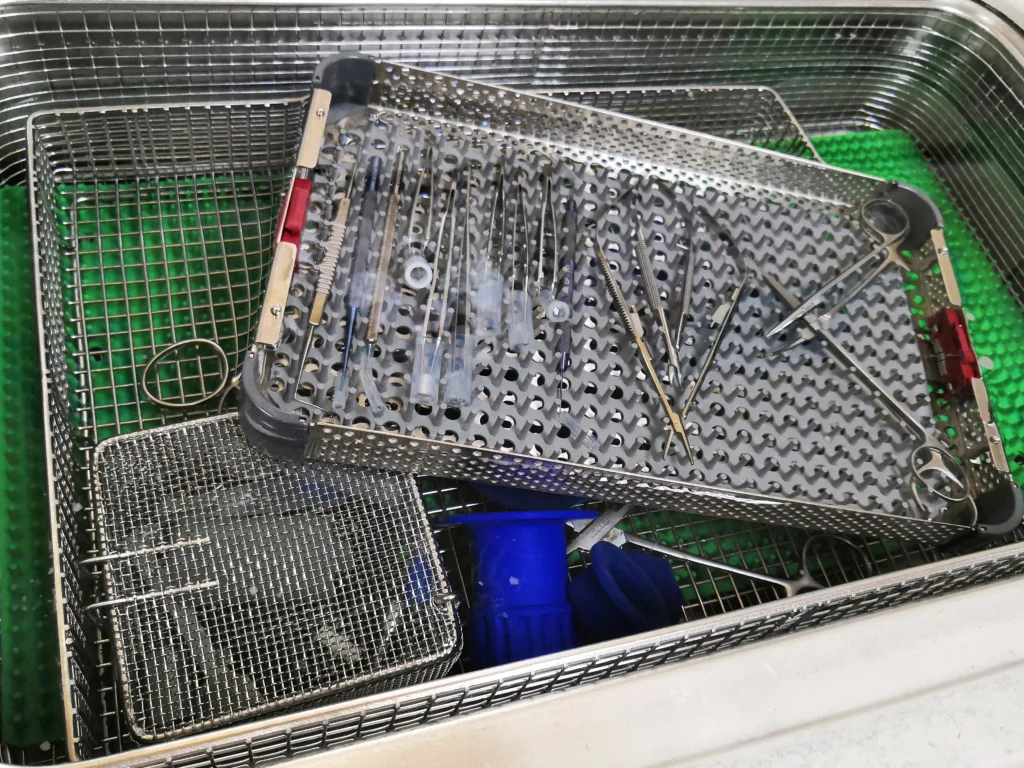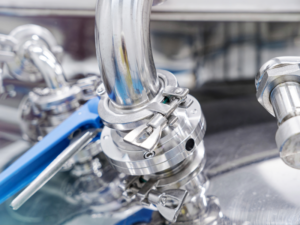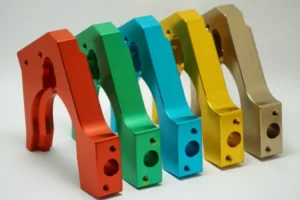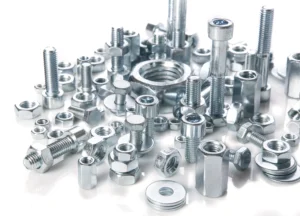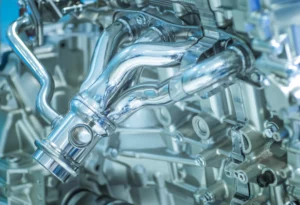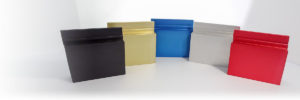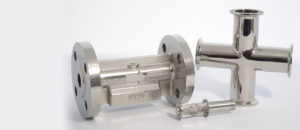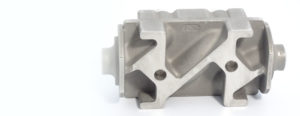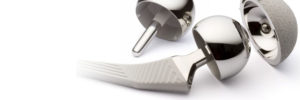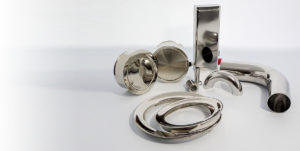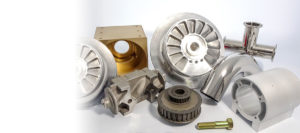For the intricate parts and components that make up the products in process manufacturing, pharmaceuticals, and medical equipment, cleanliness is more than just a luxury – it’s a necessity. At AMF Technologies, we understand the importance of absolute cleanliness and have perfected the art and science of precision cleaning services to meet the exacting demands of parts manufacturers, OEMs, and mechanical contractors.
Why are Precision Cleaning Services Important?
Functionality: For components that need to operate flawlessly, even the tiniest impurity can be the difference between optimal and subpar performance. Especially in the realm of medical equipment and pharmaceutical manufacturing, a particle out of place can have serious ramifications.
Durability: Contaminants can accelerate wear and tear. By ensuring parts and components are free from impurities, precision cleaning can enhance longevity and reduce the need for frequent replacements or repairs.
Safety: Especially crucial for pharmaceutical and medical sectors, ensuring components are free from contaminants safeguards against potential health risks. A thoroughly cleaned part reduces the likelihood of adverse reactions, malfunctions, or contamination.
Cost-Efficiency: A cleaner component means fewer recalls, less maintenance, and enhanced performance. Over time, investing in precision cleaning services can save substantial amounts in terms of costs associated with repairs, replacements, and liabilities.
Aesthetic Appeal: For parts that are visible or where aesthetics play a role, a pristine, uncontaminated surface looks more professional and can be crucial for brand image and trustworthiness.
What are Precision Cleaning Services?
Precision cleaning services refer to the meticulous process of removing contaminants such as dirt, grease, oil, and other residues from the surface of various materials. Unlike standard cleaning, precision cleaning involves specialized equipment, solvents, and procedures to achieve an ultra-clean surface free from microscopic impurities.
This service goes beyond the naked eye, targeting contaminants that can compromise the functionality, durability, and safety of components. The methods employed in precision cleaning often include ultrasonic cleaning, high-purity solvents, and controlled environments to avoid re-contamination.
Methods Employed in Precision Cleaning
Precision cleaning services use a diverse set of advanced techniques to achieve impeccably clean surfaces. Among these, ultrasonic cleaning, high-purity solvents, and controlled environments stand out as cornerstone methods. Here’s a closer look at what’s involved in these processes:
1. Ultrasonic Cleaning
Ultrasonic cleaning employs the use of high-frequency sound waves to create microscopic bubbles in a cleaning solution. When these bubbles collapse (a phenomenon called cavitation), they produce intense localized energy that dislodges contaminants from surfaces.
Process:
- Parts are submerged in a tank filled with a suitable cleaning solution.
- Ultrasonic transducers, usually positioned at the bottom or sides of the tank, produce sound waves that propagate through the solution.
- The energy from the collapsing bubbles works in tandem with the cleaning solution to scrub contaminants off the parts.
- The parts are then rinsed and dried, often using purified air or specialized dryers.
Benefits: Ultrasonic cleaning can reach even the most intricate parts, crevices, and internal channels, ensuring thorough cleaning. It’s especially useful for complex geometries that are difficult to clean with traditional methods.
2. High-Purity Solvents
High-purity solvents are chemicals with minimal impurities, ensuring that they don’t introduce new contaminants when used in the cleaning process.
Process:
- The chosen solvent is applied to the parts, either by immersion, spraying, or wiping.
- Contaminants dissolve into the solvent due to its chemical properties.
- Once the contaminants are dissolved, the solvent can be evaporated or removed, leaving the part clean. In some cases, a secondary solvent or a rinse might be used to remove any residue from the primary cleaning step.
Benefits: High-purity solvents offer consistency and reliability. They can be tailored for specific contaminants or materials, ensuring effective removal of impurities without damaging the substrate.
3. Controlled Environments
A controlled environment, such as a cleanroom, minimizes the risk of reintroducing contaminants to a cleaned part.
Process:
- Cleanrooms are specialized facilities designed to maintain extremely low levels of airborne particles, controlled humidity, and temperature.
- Air is continuously filtered using High-Efficiency Particulate Air (HEPA) or Ultra Low Penetration Air (ULPA) filters to remove particles.
- Workers in cleanrooms wear specialized garments to reduce the introduction of contaminants.
- The parts, after undergoing cleaning processes, are stored, inspected, and sometimes even assembled in these controlled environments to prevent re-contamination.
Benefits: Controlled environments offer assurance against re-contamination. Especially crucial for high-tech industries like semiconductor manufacturing, aerospace, and medical device production, cleanrooms ensure that the efforts of precision cleaning are maintained until the part reaches its final application.
What Types of Products Require Precision Cleaning Services?
Given the highly specialized nature of this service, numerous industries and products benefit from precision cleaning, including:
Process Manufacturing: Components used in manufacturing equipment, especially those in direct contact with the end product, need to be impeccably clean to ensure consistent product quality.
Pharmaceutical Companies: Any apparatus or component coming in contact with medicines must be free from contaminants to ensure patient safety and drug efficacy.
Medical Equipment Manufacturers: Devices like implants, surgical instruments, and diagnostic equipment demand the highest level of cleanliness to ensure they function correctly and safely.
OEMs & Parts Manufacturers: Original Equipment Manufacturers often require precision-cleaned parts to ensure the longevity and functionality of their assembled products.
Mechanical Contractors: In sectors where precision is paramount, contractors often rely on clean components to ensure the systems they design and install operate without hitches.
Precision cleaning services are the backbone of many industries, ensuring the reliability, safety, and efficacy of various products and systems. At AMF Technologies, our expertise ensures that our customers receive nothing short of perfection. When it comes to precision cleaning services, we set the gold standard. Contact us with any questions or to request a quote.
